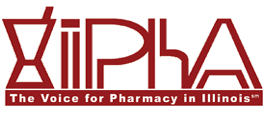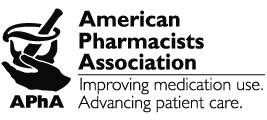How Licensed Professionals Can Maintain Ethics and Avoid Discipline

In the state of Illinois, licensed professionals such as doctors, lawyers, accountants, and engineers are held to high ethical standards. These professionals are expected to conduct themselves with integrity and adhere to a code of ethics in their respective fields. Failing to do so can result in disciplinary actions that may have severe consequences on their careers. Professionals who have been accused of committing ethical violations can work with an attorney to determine their best options for defending against disciplinary action.
The Importance of Ethics for Licensed Professionals
Ethics play a crucial role in maintaining public trust and confidence in licensed professionals. Clients and patients rely on these professionals for medical care, services, advice, and other forms of assistance, often during vulnerable times in their lives. By adhering to ethical principles, licensed professionals demonstrate their commitment to providing quality care or service while protecting the interests of those they serve.
Conversely, unethical behavior erodes public trust and can lead to serious repercussions for both the professionals involved and the people who receive their services. It is essential for licensed professionals to understand common ethical issues within their fields and actively work towards avoiding them.
Best Practices for Maintaining Ethical Conduct
To avoid disciplinary action or damage to one's professional reputation, licensed professionals should follow these best practices:
-
Maintain competency: Professionals should stay up to date with developments in their fields through continuing education programs or industry conferences.
-
Honesty and integrity: Professionals should always be truthful about their abilities, the potential risks involved with any treatments or services provided, the fees that must be paid, or any other concerns that may affect clients or patients.
-
Fiduciary duty: Professionals should always prioritize their clients’ best interests above their own personal gain. Conflict-of-interest policies can be implemented to address situations in which personal interests may conflict with clients’ interests.
-
Confidentiality: It is important to respect and protect confidential information shared by clients or patients, adhering to all applicable laws and regulations. Violations of confidentiality regulations, such as HIPAA regulations that prohibit the disclosure of protected health information, can lead to fines and other penalties in addition to license discipline.
-
Avoid dual relationships: Professionals should be cautious when entering into relationships with clients or patients outside of their professional capacity. Romantic relationships or other interactions can create conflicts of interest.
-
Cultural competence: Professionals should recognize and respect the diversity of their clients or patients, adapting their services or treatment plans accordingly while avoiding discrimination.
Maintaining ethical conduct also extends to communication. Licensed professionals should effectively communicate with their clients or patients, ensuring that they have a clear understanding of the services provided and any potential risks involved. Managing expectations is crucial to avoid misunderstandings that could potentially lead to complaints or legal disputes.
The Role of Professional Associations
Professional associations play a significant role in upholding ethical standards among licensed professionals. Many professions have their own established organizations that provide guidance on ethics-related matters, offer resources for continuing education programs, and facilitate networking opportunities. Joining these associations can help professionals stay updated on current ethical practices while building connections with others in their field.
Ongoing Ethical Education
Ethical considerations evolve over time as society changes its values and norms. It is essential for licensed professionals to undergo ongoing education on ethics throughout their careers. This helps them stay aware of emerging issues specific to their field while refreshing their knowledge about foundational principles encompassed within codes of conduct.
Engaging in regular discussions among colleagues or participating in workshops centered around ethics can also foster a better understanding of how certain scenarios align with or deviate from standard practices. Furthermore, actively seeking feedback from clients or patients can help licensed professionals identify areas where they may need improvement and ensure that their services remain ethical, effective, and focused on client satisfaction.
Contact Our Chicago Professional License Defense Lawyer for Ethical Concerns
If you are a licensed professional who is facing disciplinary action or need to respond to complaints regarding unethical behavior, it is crucial to consult with an experienced lawyer who has experience with these matters. At The Law Offices of Joseph J. Bogdan, Inc., our Illinois professional license discipline attorney is well-versed in the regulations that apply to specific professions, and he can explain your rights and advocate on your behalf during any hearings or investigations. If you are facing such a situation, do not hesitate to seek legal representation. Defending against discipline is imperative for your career and your future success as a licensed professional. To schedule a free consultation, contact us at 630-310-1267.














